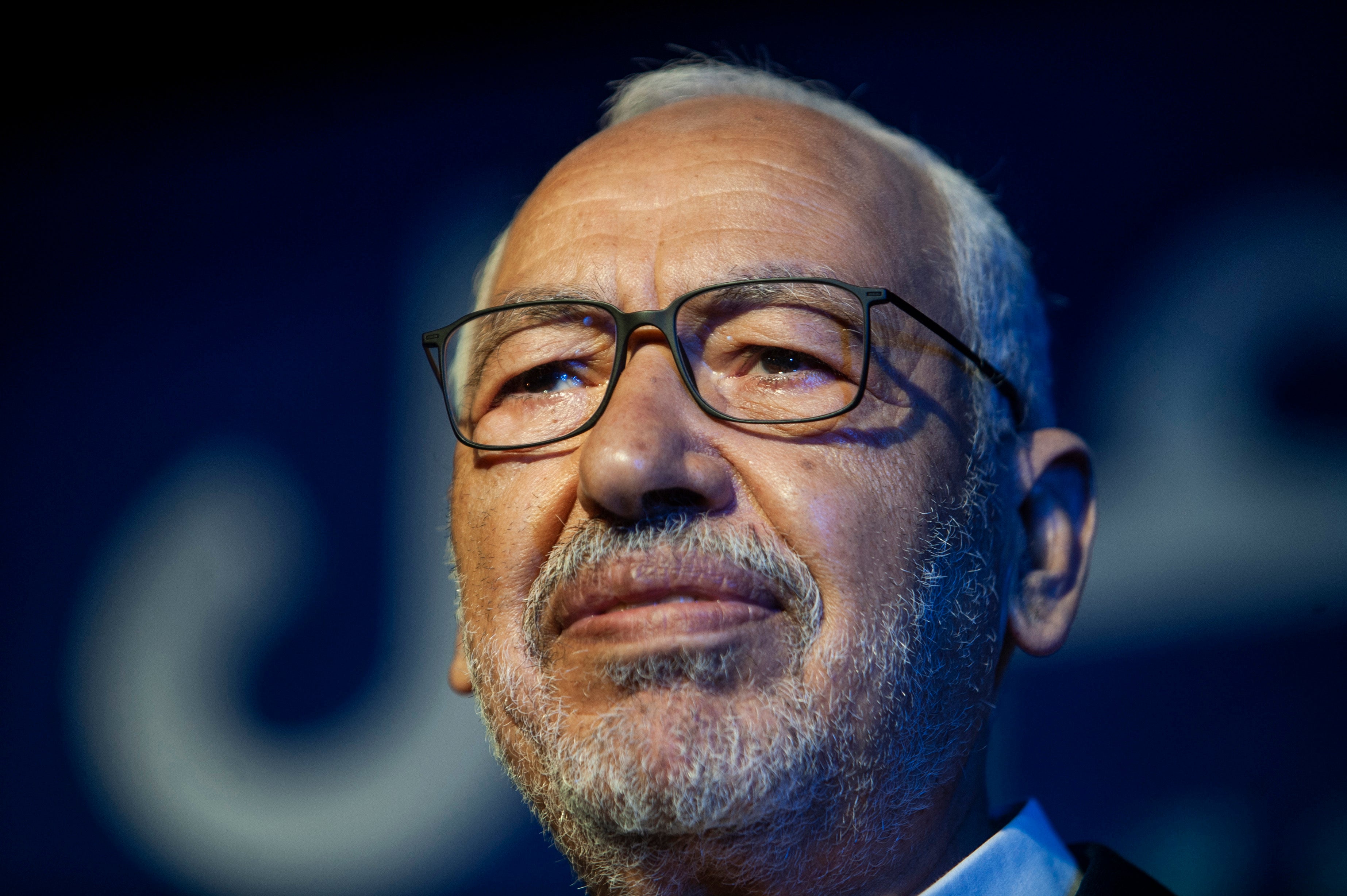Tunisian opposition leader urges president to ‘pull back from the brink’ and engage in dialogue
In an opinion piece for The Independent, Rached Ghannouchi said Tunisia’s fragile journey towards democracy is ‘under threat’

Your support helps us to tell the story
From reproductive rights to climate change to Big Tech, The Independent is on the ground when the story is developing. Whether it's investigating the financials of Elon Musk's pro-Trump PAC or producing our latest documentary, 'The A Word', which shines a light on the American women fighting for reproductive rights, we know how important it is to parse out the facts from the messaging.
At such a critical moment in US history, we need reporters on the ground. Your donation allows us to keep sending journalists to speak to both sides of the story.
The Independent is trusted by Americans across the entire political spectrum. And unlike many other quality news outlets, we choose not to lock Americans out of our reporting and analysis with paywalls. We believe quality journalism should be available to everyone, paid for by those who can afford it.
Your support makes all the difference.Tunisia’s president Kais Saied must “pull back from the brink“ and engage in dialogue, the head of the country’s largest opposition party has said, warning that the legacy of the 2011 revolution was in danger.
In an opinion piece for The Independent Rached Ghannouchi, Tunisia’s parliament speaker and the leader of the moderate islamist party, accused the president of a “power grab... that put our nascent, fragile journey towards democracy under threat”.
Last month President Saied plunged the country into its deepest political crisis in a decade by firing the country’s prime minister, defence and justice ministers as well as freezing the parliament. Troops were also deployed to the legislature building preventing parliamentarians from accessing the building and large gatherings banned.
The dramatic move has been labelled a “coup” by experts and the president’s staunchest critics including those in Ennahda.
Mr Saied has vehemently denied this saying he was answering the demands of protesters who in the lead up to the crisis had taken to the streets calling for the resignation of the premier and dissolution of the parliament, after a disastrous response to the pandemic and economic woes. The Independent reached out to the office of the presidency but did not immediately receive a reply.
“The President so far has rejected calls for dialogue but we hope that wisdom will prevail in the end,” Ghannouchi wrote. “We call on President Kais Saied to pull back from the brink and engage in real, inclusive political dialogue and engagement,” he added, saying that this should include revoking the suspension of parliament, the nomination of a prime minister and a government voted on by the parliament that should be consulted on political reforms.
“Before the eyes of the international community, Tunisian democracy, a beacon of hope for the Arab world, is being extinguished by an all too familiar pattern of events,” he continued.
“ We cannot allow it to happen.”
Tunisia has long been heralded as the success story of the Arab Spring uprisings in 2011, which saw the overthrow of long-time Tunisian president Zine El Abidine Ben Ali.
Since then it has lurched from crisis to crisis.
It has struggled with surging unemployment, which over the last year of the pandemic has surged to nearly 18 per cent on average and nearly 40 per cent among the youth. The country’s tourism industry has taken a huge hit after recurring attacks by the so-called Islamic State (IS).
Mr Saied, a former constitutional lawyer, has vehemently denied that he instigated a coup and said he pushed forward with the measures in response to calls from the street.
Much of the anger in nationwide protests leading up to the dramatic suspension of the parliament, had been directed towards Ennahda which commands the largest block in the parliament. Ennahda’s offices and local party headquarters have been stormed and even set alight during rallies.
Mr Saied also claimed he made the move after “consultations, under Article 80 of the constitution, with the prime minister and speaker”.
Mr Ghannouchi denied that Mr Saied spoke to him about the measures. Ex-prime minister Hichem Mechichi at first said nothing but later said he would not be a “disruptive element or problem” and would hand over power “wishing all the success of the new government team”.
Last Thursday, Tunisia’s anti-corruption authority aired photographs of Mr Mechichi in his first public appearance since his July 25 dismissal.
The anti-corruption authority’s photos of Mechichi, posted on its website, appeared to dispel unconfirmed reports that he was under house arrest.
In his opinion piece, Mr Ghannouchi however struck a more conciliatory tone, he notably avoided using the word “coup” and did not call for the international community to intervene in any way. He warned of “dictatorship” because of what he said was the storming of media offices, the sacking of ministers and regional governors, controls on media and the wholesale travel bans on judges, lawyers, politicians, businessmen and civil society activists. “We cannot allow these challenges to lead to another dictatorship” he wrote. “Countless Tunisians have given their lives and sacrificed to build a democratic system that can protect freedoms and deliver social justice and dignity.”
Join our commenting forum
Join thought-provoking conversations, follow other Independent readers and see their replies
Comments